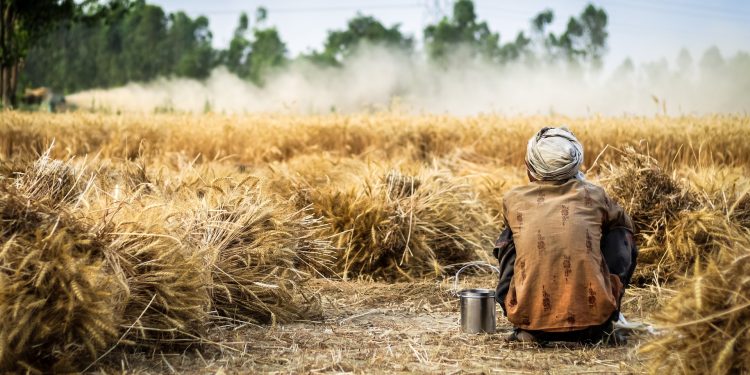Farmers Suicide: A Tragedy With No End

Introduction
This year, farming in Odisha took a change for the worst. Farmer suicide continued to plague the state as records reached an alarming four suicides within the span of a week! The latest victim was Akshaya Dharai whose crop fell prey to the attack of the notorious Brown Stem Hopper pest. This year, Akshaya, in addition to his own one acre of land, had cultivated another eight acres that he had initially taken on lease. Unfortunately, this was not all: adding to the burden of the power tiller, Akshay had taken an agricultural loan of 2 lakhs from Tora Primary Agricultural Cooperative Society (PACS)! What seemed to be a bumper harvest transpired into an even worse scenario for the farmer. A sudden outbreak of Brown Plant Hopper ravaged his crops, leaving the leaves bone-dry and rendering the crop worthless. Despite several insect sprays as a precaution to eradicate pests, all attempts were left in vain as his crops succumbed to the pests. His destroyed crops, combined with the burden of financial loans took a large toll on Akshaya and essentially pushed him to the edge as he consumed poison. He was announced dead by the time he reached the hospital. It was later revealed that the victim had borrowed money from friends as well as relatives to cover costs of the treatment of his ailing sister who underwent chronic kidney ailment.
A Little Too Late
On Monday, after the damage was done, the state government introduced farmer relief packages in the form of financial compensation for all farmers whose crops failed due to the pests. This includes those who set their crops on fire and others who were denied compensation earlier. The packages include:
- Input subsidy to both small and marginal farmers who have sustained crop loss of 33% or more due to pest attack
- Rs 6,800 per hectare to rain-fed and non-irrigated areas
- Rs 13,500 per hectare of land in areas under assured irrigation
- 75% subsidy for the purchase of insecticides and pesticides for crop management in areas attacked by the brown planthoppers
- Livelihood support in the form of backyard poultry for the 50 000 landless, marginal and small farmers in pest-affected areas
- Distribution of fodder kits
- Waivered tuition fees for children of pest-hit farmers
Crying Over Spilt Milk
This was yet another example of delayed action on behalf of the government. Instead of ‘crying over spilt milk,’ the government should try and prevent such incidents from occurring. Farmer suicides are nothing out of the blue in the state of Odisha, yet the government has turned a blind eye to these sad incidents for many years. Ignorance has played a major role for the masses who fail to realize that without farmers, citizens are nothing as farmers are the country’s sole source of food! From farmers’ perspective, farming is their bread and butter; failure of their crops impacts their livelihood to an enormous extent. The government could play a more active role to curb farmer suicides. This could be done through the implementation of even more relief programs, assigning government officials to work hand in hand with farmers, providing farmers with effective high-grade fertilizers and pesticides as well as warnings to farmers of any unfavourable climatic conditions such as droughts or floods. This could ensure such wide-scale catastrophes do not occur.
